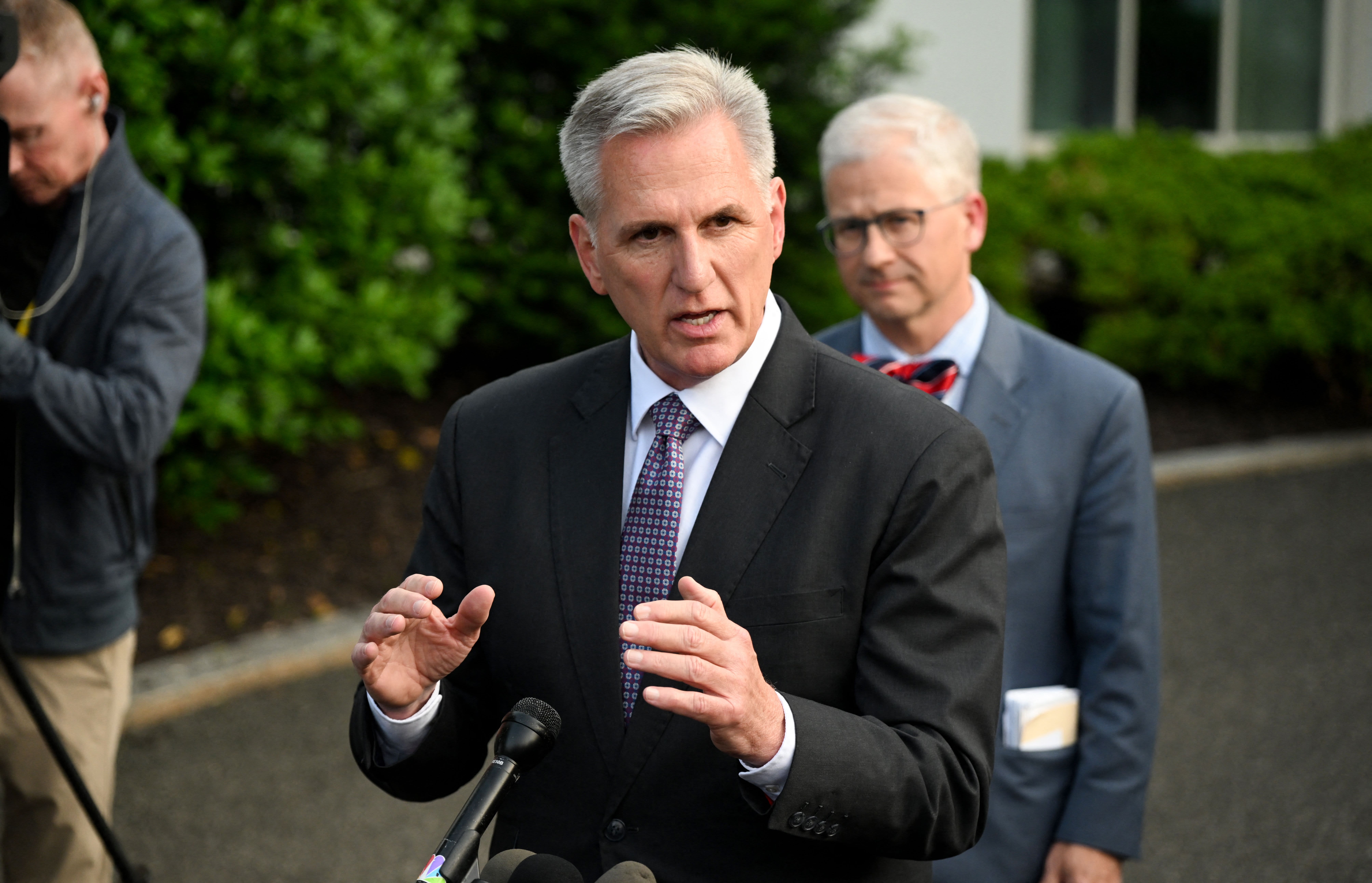
WASHINGTON — A significant group of House Republicans raised questions Tuesday about whether the Treasury Department’s June 1 deadline to avoid a potential U.S. debt default was accurate.
“We’d like to see more transparency on how they come to that date,” House Majority Leader Rep. Steve Scalise said Tuesday at a news conference.
Scalise also said he believed that Treasury Secretary Janet Yellen’s latest comments, out Monday, “implied that it’s June 1, or later, giving some openness to the idea that June 1 may not be the so called X-date.”
Yellen released a new letter to congressional leaders Monday that appeared to say the opposite of what Scalise claimed, specifically omitting a line from a previous letter about how extraordinary measures could buy the United States more time to avoid defaulting on its debt.
“We haven’t really been able to see a lot of transparency, but it looks like they’re hedging now and opening up the door to move that date back,” said Scalise.
A Treasury spokesperson declined to comment.
House Speaker Kevin McCarthy has not questioned Yellen’s timeline, and on Tuesday his office reaffirmed in a new release that the deadline for talks is June 1. “President Biden now has just 9 days to get serious and strike a responsible agreement to raise the debt limit immediately,” read the release.
On Capitol Hill, debt ceiling negotiators prepared to narrow their focus to a smaller group of key issues that were ripe for compromise, an encouraging development with just nine days left before the U.S. faced the serious risk of a potentially catastrophic national debt default.
“We’re getting closer,” McCarthy told reporters late Monday, adding that the “circle” of issues was becoming “smaller, smaller, smaller.”
White House press secretary Karine Jean-Pierre on Tuesday said there were not plans for the pair to meet that day, but McCarthy has been negotiating “in good faith.”
“Yes, we just have to continue to do that, we have to keep doing that,” Jean-Pierre said.
The issues still on the table Tuesday included reforms to energy permitting, new work requirements for some forms of federal aid and the redistribution of unused Covid-19 emergency funds.
Also on the table are “health savings,” CNBC reported Monday, which could include reforms to how much the government pays health-care companies under several major federal health insurance plans.
McCarthy met Monday afternoon with President Joe Biden, a face to face that both sides described as “productive,” but which failed to bring the deal to raise the debt limit that financial markets and global investors are counting on.
House Republicans held their weekly conference meeting Tuesday morning, during which McCarthy reportedly said they were “nowhere near a deal” and urged the caucus to stick together and support the deal he eventually reaches.
“Less than 10 days from a default, Joe Biden has yet to offer or accept our sensible solution that raises the debt ceiling and addresses our debt crisis,” said House Republican Conference Chair Rep. Elise Stefanik, N.Y., on Tuesday.
A Republican negotiator, Rep. Patrick McHenry, N.C., told reporters that spending was still the biggest hurdle to an agreement.
“The fundamental issue here is the spending. This is not about gamesmanship,” McHenry said Tuesday outside the headquarters of the Republican National Committee. “This is about us getting a deal before the deadline that meets the Speaker’s message that we’re spending less money next year than we’re spending now.”
Biden is hoping to reach a debt limit deal that would push the next deadline out past the 2024 presidential election. But House Republicans, who so far have endorsed only a one-year hike, say that if Biden wants more time, then he will need to agree to even more cuts.
–CNBC’s Emma Kinery contributed to this article.
This is a developing story. Please check back for updates.
Source: CNBC
